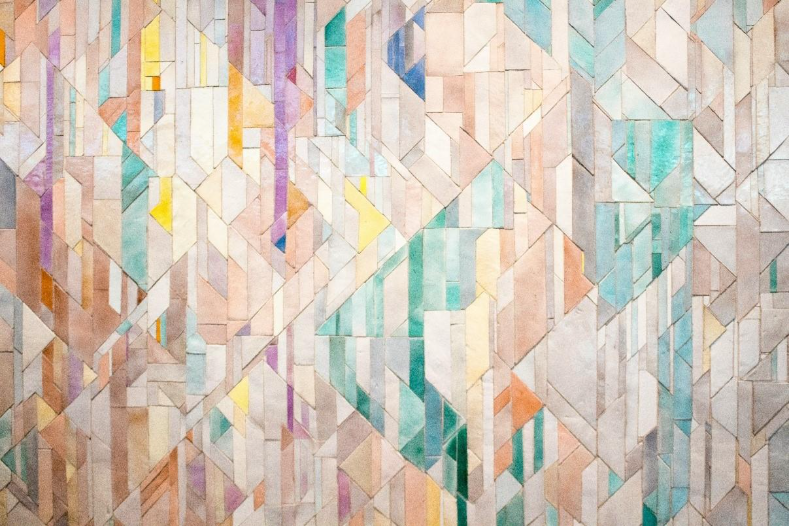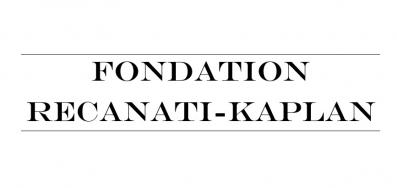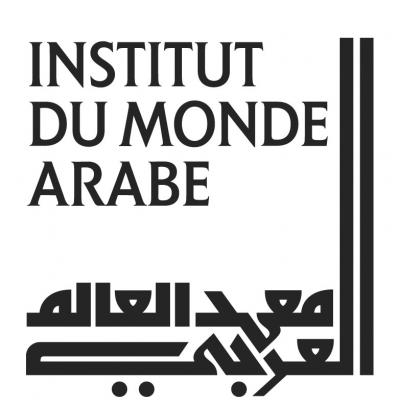Call for Applications: The 2026 Recanati-Kaplan Prize
Art & Design, Books & Ideas, Film & TV, Museums & Heritage, Music, New Media, Performing Arts

Villa Albertine, in partnership with the Institut du monde arabe and the Recanati-Kaplan Foundation, is pleased to launch the call for applications for the 2026 Recanati-Kaplan Prize.
The Recanati-Kaplan Prize aims to support artistic and intellectual exchanges between the United States, France, and the Arab world. Each year, a creator, cultural professional, or researcher from the Arab world who is pursuing an original research project requiring an immersive stay in the United States in the fields of arts and ideas is awarded the prize.
The winner will receive:
- a two-month exploratory residency in a US city supported by Villa Albertine in the fall of 2026
- a $15,000 grant
The winner will join the 2026 cohort of Villa Albertine, which will celebrate the fifth anniversary of its residency program.
Applications must be submitted by November 20, 2025, 11:59 p.m. (Paris time).
Eligibility Requirements
Applications are open to any creator, cultural expert, or scholar from the Arab world proposing an original research project in the realm of arts and ideas that would require an immersive visit to the United States.
Each applicant will have to propose a residency project on a theme of their choice, focusing on contemporary issues affecting the United States and one or more countries in the Arab world.
Applicants must hold the nationality of one of the following countries: Algeria, Saudi Arabia, Bahrain, Comoros, Djibouti, Egypt, United Arab Emirates, Iraq, Jordan, Kuwait, Lebanon, Libya, Morocco, Mauritania, Oman, Palestine, Qatar, Somalia, Sudan, Syria, Tunisia, or Yemen.
Applicants must be fluent in English.
Applicants must be available to complete a two-month residency in the fall of 2026 (i.e. any time between the months of September and December 2026).
Applications may only be submitted on an individual basis. Group applications will not be accepted.
Applicants must be at least 21 years of age prior to the proposed start date of their residency.
Applicants must be able to adapt to potential constraints of their proposed residency location. For example, it is strongly advised that they hold a driver’s license if traveling to large metropolitan areas, such as Los Angeles and San Francisco.
Residency Location
Candidates are asked to organize their residency in a territory that makes sense in terms of the themes they wish to explore. The residency project can focus on the city of their choice. The winner will be accompanied by Villa Albertine’s nearest office amongst the ten cities in which it is based.
The cities where Villa Albertine has established a permanent office are: Atlanta, GA; Boston, MA; Chicago, IL; Houston, TX; Los Angeles, CA; Miami, FL; New York, NY; New Orleans, LA; San Francisco, CA; and Washington, DC.
Residency Projects
Applicants are advised to propose their exploratory residency project within a US city that would foster original artistic or intellectual reflection not likely to be developed elsewhere.
The concept of the exploratory residency project should not be thought of as indoor desk work, but rather as a field investigation that inspires and builds new connections. The project’s value lies in its relationship to the location. As such, meetings, visits, events, and exchanges will all help enrich the work carried out.
Proposed projects must address a societal issue that resonates both in the United States and the Arab world.
The residency is not limited to one specific form, e.g. material art, as would be the case with a production-based residency.
All disciplines related to the arts, culture, and ideas are welcome, including visual arts, design, architecture, performing arts, music, cinema, digital creation, fiction writing, comics, social sciences, etc.
Support from Villa Albertine
For their stay in the United States, a lineup of meetings, visits, and events will be established for the resident, according to their project and needs.
Villa Albertine will support the resident by providing access to its knowledge of the local arts and culture scene and its network of partners. At the same time, Villa Albertine’s residency model values initiative and independence in candidates, which are essential for getting the most out of a field research experience involving contact with a wide range of American contacts.
Villa Albertine will cover program-related travel and living expenses through the following arrangements:
- A residency stipend for daily living expenses, calculated according to the local cost of living (e.g. $100 per day in Chicago)
- Round-trip travel to the US from the resident’s home country
- Accommodation
- Car rental, if necessary, depending on the proposed location
- Health, civil liability, and repatriation insurance
Villa Albertine cannot cover any costs other than the aforementioned travel and living expenses.
Selection Criteria
The criteria for assessing an application are:
- Quality of the applicant’s overall work – Do they practice their artistic or intellectual work on a professional basis? Are they recognized by peers in their field? Is their project for Villa Albertine a logical continuation of their research objectives?
- Quality of the project – Does the project address a contemporary issue that resonates both in the United States and in the Arab world? Are the project’s artistic, cultural, and intellectual approaches clear and relevant? Does the project present a strong connection to the dynamics of the applicant’s proposed city of residency such that it would require them to travel to the United States?
- Project feasibility: Villa Albertine reserves the right not to accept projects that it would not be properly equipped to support.
Application Process
Applications are to be submitted following this link before November 20 2025, 11:59 p.m. (Paris time).
The application form is divided into three main sections, which need to be written in English:
- The applicant: Information about the applicant
Presentation of the applicant’s career and work in PDF format, limited to 10 pages and 10 MB (e.g. resume and summary of a small selection of projects related to the project theme.)
A three-minute video in which the candidate speaks in English. A very good level of conversational English is essential to complete the residency successfully. This video should demonstrate the candidate’s level of English. Candidates are invited to introduce themselves and discuss their project for the Recanati-Kaplan Prize, without reading from a prepared text. The video should be uploaded to a platform such as YouTube or Vimeo, set to “unlisted” mode so that it is only accessible to people who have the viewing link. If your video is password protected, please provide us with the password.
- The stay: The applicant must communicate the city/cities they wish to pursue their projects in.
- The project: Presentation text summarizing the proposed residency project. The project must demonstrate the applicant’s interest in participating in the residency program and offer an innovative research project on societal themes linking the United States, the Arab world, and France.
Any applications deemed incomplete or failing to meet these conditions will not be considered. Any untruthful representations will automatically render the application null and void. Applicants will be informed of their status by March 2026. Villa Albertine will not host any resident who is unable to meet the requirements for entry into the United States.
Previous Winners
Discover the projects of the three previous winners of the Recanati-Kaplan prize
- Laila Hida, 2023 laureate
- Dorothée-Myriam Kellou, 2024 laureate
- Khaled Alwarea, 2025 laureate
In partnership with

Recanati-Kaplan Foundation
Created in 2010 by Thomas S. Kaplan and Daphne Recanati-Kaplan, the Recanati-Kaplan Foundation supports the development of initiatives of excellence in four areas: the protection of our biodiversity; research in medical sciences; the teaching of history and philosophy; and cultural, artistic, and intellectual bridge-building between the Arab world, France and the United States.

Institut du monde arabe
The Institut du monde arabe was founded in 1980 by France and the League of Arab States to promote and highlight Arab culture in all its forms. Housed in a building designed by the eminent architect Jean Nouvel and Architecturestudio, this genuine hub of encounters and exchanges opened its doors in 1987. For the past 35 years, the Institut du monde arabe has continued to strengthen cultural, political, economic, and social connections between France and the Arab world.
